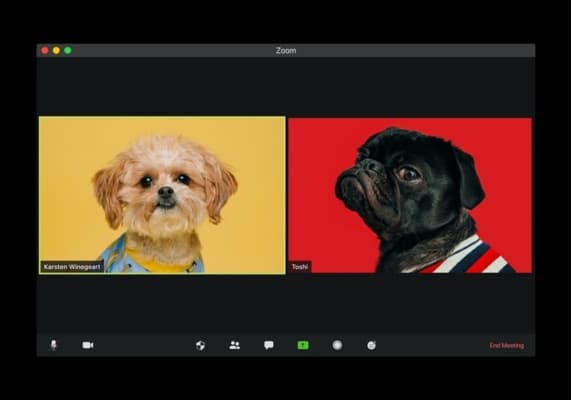
How Recruiters Select and Interview Candidates During the Pandemic
While remote work was already on the rise and technology has been improving to help recruiters and companies better vet candidates before making a job offer, the quick transition fueled by the pandemic was still a jolt to an established system. But recruitment is an adaptable industry, and using technology already available, the process became more streamlined. The rise of remote hiring has been a lesson in the flexibility of the industry.
Remote Work and the Evolution of the Recruitment
This transition to remote work, especially the sudden nature of it in many cases, has fueled the rise of remote recruiting. New workers are now remote from day one, which changes the entire process of onboarding and training. In a survey conducted by Robert Half, 75% of the responding senior managers indicated their companies conducted remote hiring and onboarding during 2020. 60% of those managers said they only implemented this strategy after the pandemic began.
Every aspect of the hiring process has been drastically shifted in the last year. Advancements that came before the pandemic were rearranged and adjusted to make the entire experience more conducive to remote work.
So how are businesses incorporating remote practices into their hiring process and why is this changing?
Employer Branding
A company’s employer brand and online reputation have a direct impact on the ability to attract and hire top talent? An employer brand is different from customer-based branding but no less important. It showcases how the company culture supports employees, demonstrates employee satisfaction and loyalty, and provides details on what a day-in-the-life at the company is like.
Companies share their employer brand by having a strong social media presence, allowing employees to be brand ambassadors, and providing transparency online. It’s become even more important as employees are no longer working in a central office environment.
Online Advertising
Reaching employees, especially if they’re not central to the company location, is a key factor in how remote work is changing recruitment. There was a time when posting open jobs on local job boards was enough to attract candidates, but if candidates are no longer focused on location-specific opportunities, the net may need to be widened.
Several remote-specific job board platforms target individuals looking for remote work. If a hiring company is not advertising in these places, the potential to miss out on great employees is high

Candidate Pre-Screening
While video conferencing software has become more popular, there is more to interviewing remote candidates than launching Zoom for a quick chat. Vetting comes in a lot of forms and what each company requires will depend on many factors. Whether a company conducts a background check or skills testing, it’s important to understand that the individual hired meets expectations.
The virtual interview is still a key part of the process. Having prospects meet with multiple team members will help make a more informed decision.
Skills Testing
In the world of remote work, where employees are not supervised throughout the day to demonstrate their aptitude, skills testing and prescreening become more important than ever. Skills tests allow employers to better understand how a new team member functions even if the same level of expertise is not shared by the hiring managers.
Many companies are also looking at personality profile tests to see how new employees will interact with the existing company culture.
Communicating
Throughout the entire remote hiring process, the number one factor needs to be communication. Every step of the process needs to be spelled out clearly and thoroughly. It may be helpful to create a remote hiring checklist to make sure the hiring team and candidates are all on the same page at the same time.
Email is probably the most used form of communication during a hiring process. Be sure to let people know what step they’re in and always let someone know when circumstances change.
Interviewing
There are some ways employers can create better-interviewing practices for remote hiring. The basics include:
- Schedule interviews so everyone has enough time to prepare
- Create a standardized system so candidates are compared fairly
- Conduct virtual interviews in a place and time free from distraction
- Email the candidate the virtual interview invitation ahead of the call
- Treat the interview the same as an in-person meeting
- Talk about the company culture and how remote work is handled
- Let the employee know where they stand in the process and the next steps
The biggest difference between a remote interview and an in-person interview is the temptation to become more casual over a video conference. Treating it like any other interview will be key.
Onboarding
Probably the biggest place where remote work differs from working in an office is the way onboarding is handled. The process is becoming increasingly easier as technology catches up. Onboarding and training are integral parts of the process, so employers need to find ways to ensure new employees feel up to speed and part of the workplace community.
Paperwork can all be handled online with e-signature services. Other aspects are a little more complicated, such as introducing the new team member to the rest of the staff and making them feel included. There are plenty of creative ways to make that happen.
Conclusion: The Rise of Remote Hiring
One thing we know for sure: remote work and remote hiring are here to stay in one form or another. The opportunity to hire talent globally will also open companies up to a much bigger worldwide presence and more inclusive hiring practices.
To successfully implement remote hiring processes, it’s been demonstrated that the right technology makes all the difference. That’s why an all-in-one recruiting solution such as HireHive will give your company access to everything you need in one place.
We help busy people hire great people.
More than 1 million candidates from around the world have applied to companies through the HireHive Recruiting software.
Want to try recruiting software that helps you source talent and hire the best candidates? Sign up for a demo today.









